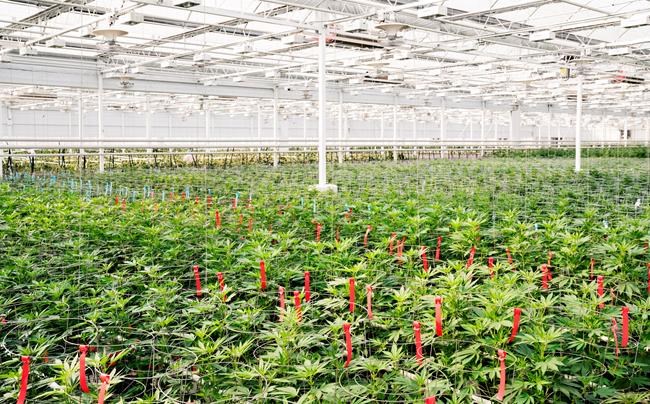Province’s money-losing marijuana numbers don’t add up, opposition leaders say
Advertisement
Read this article for free:
or
Already have an account? Log in here »
To continue reading, please subscribe:
Monthly Digital Subscription
$19 $0 for the first 4 weeks*
- Enjoy unlimited reading on winnipegfreepress.com
- Read the E-Edition, our digital replica newspaper
- Access News Break, our award-winning app
- Play interactive puzzles
*No charge for 4 weeks then billed as $19 every four weeks (new subscribers and qualified returning subscribers only). Cancel anytime.
Read unlimited articles for free today:
or
Already have an account? Log in here »
Hey there, time traveller!
This article was published 15/10/2019 (1647 days ago), so information in it may no longer be current.
On the first anniversary of cannabis legalization, critics are questioning why the provincial government isn’t publicly predicting profits from sales of the drug just yet.
The government’s total gross profit from sales in 2018-19 exceeded $5.3 million, according to the province’s latest public accounts. But that profit was outweighed by costs of nearly $7.8 million, including annual costs surpassing $3.6 million and one-time costs totalling more than $4.1 million. The net loss was $2.4 million.
The one-time legalization costs relate to administration, policy development and planning, health and safety, enforcement, justice and policing and public education, a spokesperson from the Finance Department noted.

The government said it’s “unknown” whether Manitoba could see positive net revenue from sales in 2019-20, considering edibles will be on the market soon, possibly spurring more startup costs.
Municipalities have been vocal about wanting a share of revenues to cover their own administrative and policing costs. But the provincial government has been adamant in saying it doesn’t expect to generate profits from cannabis sales anytime soon.
In an email, NDP Leader Wab Kinew predicted the province should be able to keep “most if not all of the revenue from cannabis sales” next year, money he said could be spent fixing health care and improving education.
“Brian Pallister is trying to hide cannabis profits so he doesn’t have to admit that his cuts to health care and education are unjustifiable,” Kinew said.
Meantime, Manitoba Liberal Leader Dougald Lamont said he’d like to see a breakdown of each one-time cost incurred by the province as a result of legalization. He believes the government is being too vague about its accounting.
“I’d like to see the numbers on what actually was spent on things like policing, because there were a lot of people saying, ‘This is going to take a huge amount out of policing,’ but that hasn’t happened, right? A lot of the predicted costs that were supposed to come along with cannabis never materialized at all,” Lamont said.
The Liberal leader alleged the provincial government interfered with an old proposal by Manitoba Liquor and Lotteries that would have seen sales operated solely by the Crown corporation. According to results of a freedom of information request publicized by the NDP in June 2018, MLL had predicted it could drum up $12.8 million in cannabis sales for 2018 and $94.8 million annually within five years under an MLL-operated model.
The government chose to let private retailers sell cannabis instead, buying their product wholesale from MLL. The Finance Department repeated Wednesday it went for a private-sector retail model designed “to help drive out the illegal market by keeping prices low.”
Lamont said he doesn’t buy the government’s rationale behind a lot of decisions on the file.
“I don’t understand why, when there was a plan for $95 million, we’re hearing from this government that there’s going to be no revenue,” he said. “It just doesn’t add up.”
— With files from Solomon Israel
jessica.botelho@freepress.mb.ca
Twitter: @_jessbu





